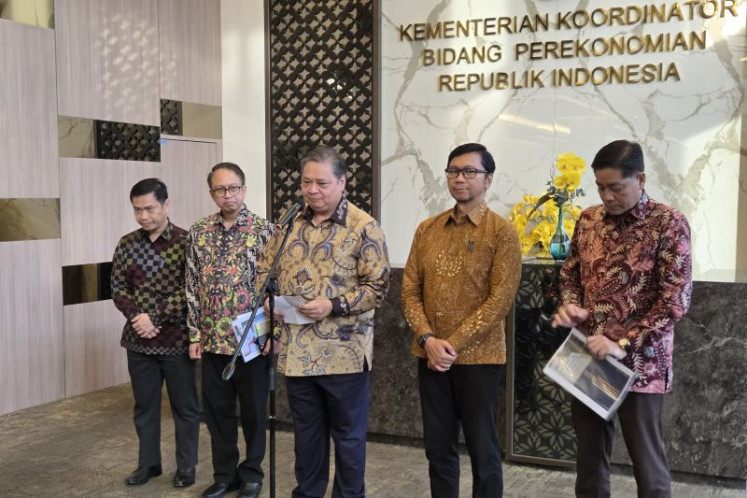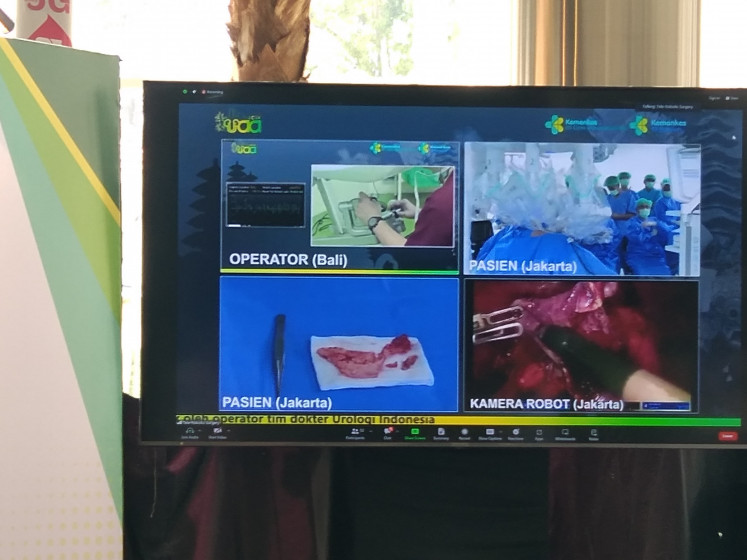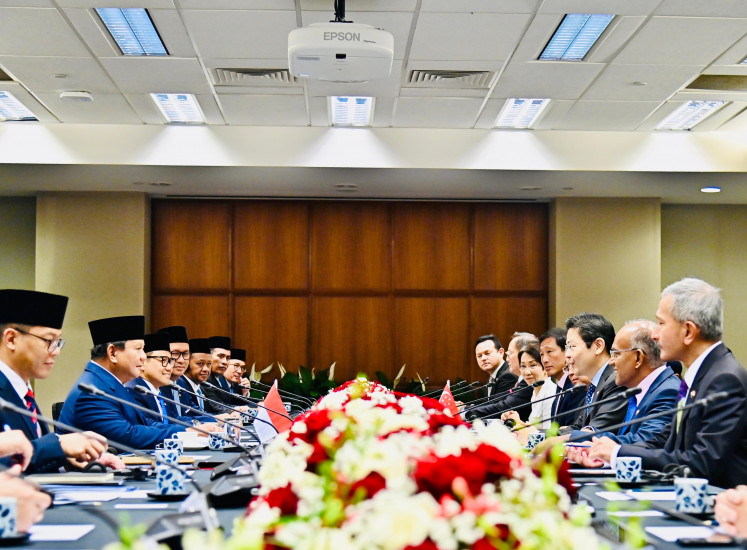Popular Reads
Top Results
Can't find what you're looking for?
View all search resultsPopular Reads
Top Results
Can't find what you're looking for?
View all search resultsBrooms export to Japan recovers
The export of handmade hamada brooms from Purbalingga regency, Central Java, has resumed after it stopped for one month following the recent quake and tsunami in Japan
Change text size
Gift Premium Articles
to Anyone

T
he export of handmade hamada brooms from Purbalingga regency, Central Java, has resumed after it stopped for one month following the recent quake and tsunami in Japan.
Demands are reported to have increased.
The brooms are produced in Munjul village, Kutasari district.
“The demand for the brooms has also come from other Asian countries such as Thailand, Taiwan and Korea,” said Supardi Haryanto, a hamada broom maker in Munjul.
He said that the disasters in Japan had prompted a one-month
export halt.
“We realize that Japan has been confronted with a massive disaster. However, there should be no problem in exporting now,” Supardi told The Jakarta Post in a recent
interview.
The hamada broom is made from wheat and sorghum plants.
Each month, Supardi sends a container consisting of 1,000 brooms, each at a price of Rp 20,000 (US$2), to Japan and Thailand.
He said he could not yet fulfill demands for Taiwan and Korea.
Like Supardi, broom producer Bambang Triyono acknowledged the product’s rising demand. He said he usually exported his products to Korea and Taiwan.
“The current demand for hamada brooms from the two countries has risen gradually and we are overwhelmed by it,” said Bambang.
He added demands from Korea and Taiwan amounted to an average of 200,000 brooms monthly.
The broom sought after by buyers are the rayung (made of thatch grass) and lakop (made of bamboo fiber).
“We are only able to export two containers a month. A container can hold 80,000 lakop brooms and between 37,000 and 40,000 rayung brooms respectively, at an export value of between Rp 350 million and Rp 400 million,” said Bambang.
He added that demands for hamada brooms were high. Annual demands from both countries have also gradually risen.
Broom producers rely on the continuity hatch-grass supply from farmers in Karangreja district and surrounding areas.
A broom maker can produce 15 brooms per day. Bambang currently employs 70 workers who are paid by the piece, 12 permanent employees and 120 sewers, all local villagers who work from home.
They take raw materials home from the factory in the morning and return in the afternoon with the completed sewn brooms.
“Workers at the workshop later make the finishing touches and pack them,” said Bambang.
“We still face obstacles such as the supply of raw materials and technology to dry grass during rain. Damp grass produces poor quality brooms, which are turned down by overseas customers. If possible, the government could assist us by providing ovens for the drying process,” said Bambang.
He added he could only meet around 50 percent of the demand.









